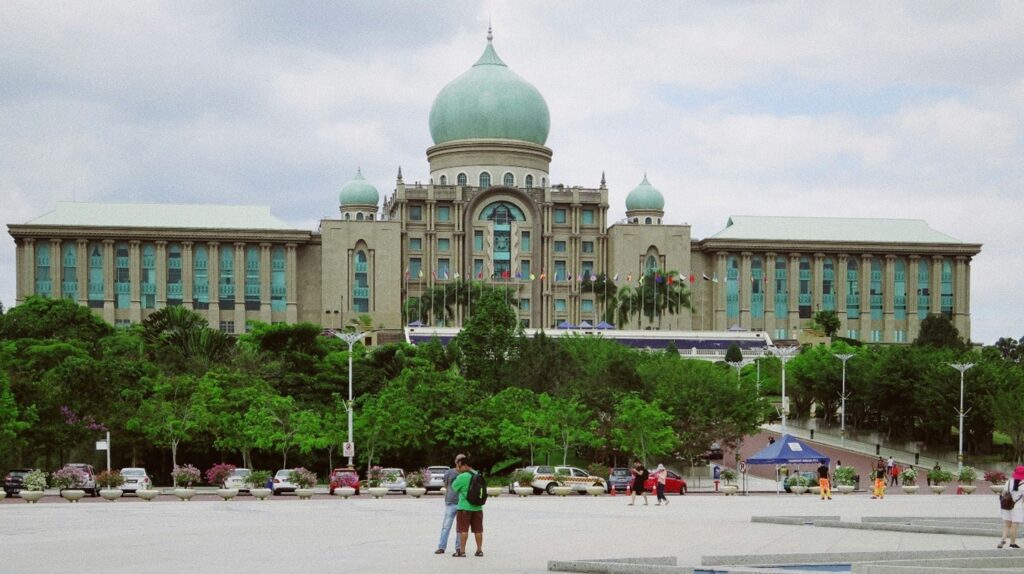
Introduction
“Don’t worry… everyone does it, right?”
This is a typical saying one might come across when questioning the practice of corruption in the Malaysian civil service. While it does not entail that Malaysians in general approve the practice, it does indicate that it has become somewhat a social norm that occurs naturally within the system.
It becomes dangerous if the public start to tolerate or normalise it in daily life.
As reported, corruption in Malaysia is deeply rooted, with the country’s Corruption Perception Index (CPI) increasing from 47 in 2018 to 50 in 2024. These figures indicate Malaysia’s substandard performance due to the constant presence of corruption to the point of becoming systemic.
Although institutional and legislative loopholes are cited as reasons, one particularly important and often overlooked factor perpetuating this problem is deep-seated cultural norms that normalise and encourage corruption.
Ranging from unquestioning obedience to the use of discretionary powers (budi bicara), cultural norms in the Malaysian civil workforce could subconsciously nourish and fuel corrupt behaviours.
Empirical evidence suggests that Malaysia ranks high in terms of power distance, collectivism and indulgence, which produce habits that become customary routines, influencing civil servants to be susceptible to corrupt practices. Furthermore, the factor of indulgence has also led civil servants to justify certain actions and behaviours, as they follow their impulses and desires to enjoy life.
Cultural Norms Feeding Corruption
Blind Obedience and Compliance
In a number of Malaysian civil departments, there is one culture that is quite clear: do not question the directives from above. This norm breeds a culture where subordinates are reluctant to resist dubious orders even when it is clearly wrong. Thereby, practices such as public procurement fraud, misuse of project allocations or embezzlement schemes often go unnoticed and thrive because no one dares to come forward to report suspicious activities and transactions.
Abdul Rahman Nordin, the secretary-general of the country’s largest trade union, stated that civil servants are being forced into taking bribes. Officers might be threatened with loss of jobs, promotions or other benefits if they disobey orders from those above them, even if these are clearly misguided.
Patronage and Nepotism
The tradition of patronage – whereby influential people favour family members, friends or political allies for jobs or contracts – erodes meritocracy and accountability. Ideally, the civil service should hire and appoint people based on merit rather than connection or relationship.
A recent case illustrates this debate quite well.
Last year, Penang Deputy Chief Minister II Jagdeep Singh Deo expressed his views that it is unreasonable to deny any role to his father-in-law – who is a prominent and respected lawyer in his profession – simply because of the nature of their relationship and Jadgeep’s own position as a leader in the society.
Professor James Chin from the University of Tasmania highlighted the frequent occurrence in Asian countries, including Malaysia, where only a few businessmen allied to politicians are allowed to bid and work on large projects. This is a simple example of how discretionary power has been employed in political and business engagements to play favourites. While this might be the reality, it nonetheless erodes meritocracy and creates an institutionalised cycle of corruption that will extend to the future.
Gift-Giving or Duit Kopi
In Malaysia, giving gifts such as duit raya (celebratory money) or duit kopi (coffee money) are a common practice to show appreciation and respect. But when a civil servant receives gifts in the form of duit raya, hampers or lavish dinners, it could open doors to the practice of returning favours (budi dibalas budi) to the “patron”. Indeed, the practice of bribing has often been camouflaged as gift-giving in the country.
A PwC report in 2020 revealed that 30% of Malaysian businesses lost opportunities because competitors offered bribes. This is a sharp increase from 11% in 2018, reflecting the widespread nature of bribing in the Malaysian context. The report also pointed out that this corrupt practice is common in everyday routine and thus has an impact on the survival of the people. If civil servants receive gifts from those who seek special treatment, this indirectly encourages a culture of courtesy that affects integrity in governance.
Collectivism
The collectivist nature of Malaysian society places immense importance on loyalty and group harmony. Therefore, the act of reporting wrong behaviour and misconduct is often considered as “exposing our people” or “betrayal”.
The C4 Center wrote that whistleblowers of cases of corruption or power abuse often become targets of harassment. This sentiment is supported by Director-General of the Public Service Department Tan Sri Mohd Khairul Adib who stated that whistleblowing civil servants are often considered the guilty party for reporting their boss and tarnishing the department’s image.
The lack of whistleblower protection mechanisms has resulted in many staying silent rather than facing risks of being terminated, displaced or threatened. Fortunately, the government has recently presented amendments and improvements to the Whistleblower Protection Act, with the aim to institutionalise integrity and credibility, as well as to strengthen the powers of law enforcement agencies.
Indeed, according to Hamilye Sham Harun of the Malaysian Institute of Integrity, the identity of informers must not be revealed, and their safety must be assured.
Chain Effects
Failure to eradicate corruption from our culture would lead to the practice being tolerated by the society. Such an outcome would result in adverse consequences not only for the welfare of the people but also for Malaysia’s economy and governance.
Indeed, corruption causes heavy financial losses. A World Bank report in 2024 estimated that corruption costs Malaysia up to 4% of the annual GDP. Corruption becomes another barrier to doing business, rendering Malaysia’s bureaucracy slow and complicated. Former trade minister Tan Sri Rafidah Aziz has expressed frustration over the increase in public sector costs, unreasonable operating conditions and investments that have made investors wary and reluctant to operate in the country. She stated that this happened because some individuals took advantage and created unfair competition.
A consequence to this would be slower economic growth and less FDI coming into the country. These diminish public confidence in government institutions and reduce civic engagement as well as cooperation. Worse, when the public can openly discern that their welfare has been directly affected by corrupt practices, such as substandard public service, any discontent experienced could easily evolve to open opposition.
These would also lead to bigger problems such as unemployment, food security and housing crisis. When these occur, the public’s confidence in the government would plummet, setting a stage for a political crisis. In fact, Prime Minister Anwar Ibrahim has emphasised Malaysia’s main problems are poor governance and systemic corruption.
To be continued in Part II.

